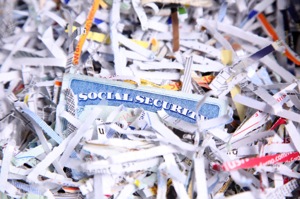How genealogy data can lead to identity theft

Irish Data Protection Commissioner Billy Hawkes has stepped in to have a database of civil registration records removed from the website IrishGenealogy.ie. The problem is that the database contains information on living persons which is often used for identity verification.
That would include things like mother’s maiden name and birth date. While these are public records, previously they had required payment of a fee, and it was not easily searchable on-line.
Of course, in the era of social media, these kinds of authenticators should have been disposed of long ago. Too many of them can be easily discovered by looking through Facebook accounts and the like.
This case also highlights the troubling nature of public records. In the past records were public in the sense that anyone could go to a government building and access the paper records. They could not be easily be searched as a whole, and the entirety of the records pulled into a private database. This is a kind of security by obscurity, but a useful one. With Internet records, many people are not comfortable with just how public much of this information is. The old inconvenience placed a low but real barrier to data access, effectively insuring that it was only done for specific people and for specific purposes. It is not at all clear how to get that without loosing all the advantages of Internet accessibility.
Personal details removed from site over ‘identity theft’ concerns
Lance Cottrell is the Founder and Chief Scientist of Anonymizer. Follow me on Facebook, Twitter, and Google+.
